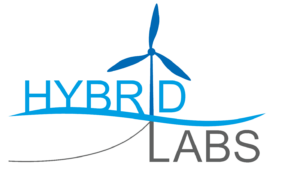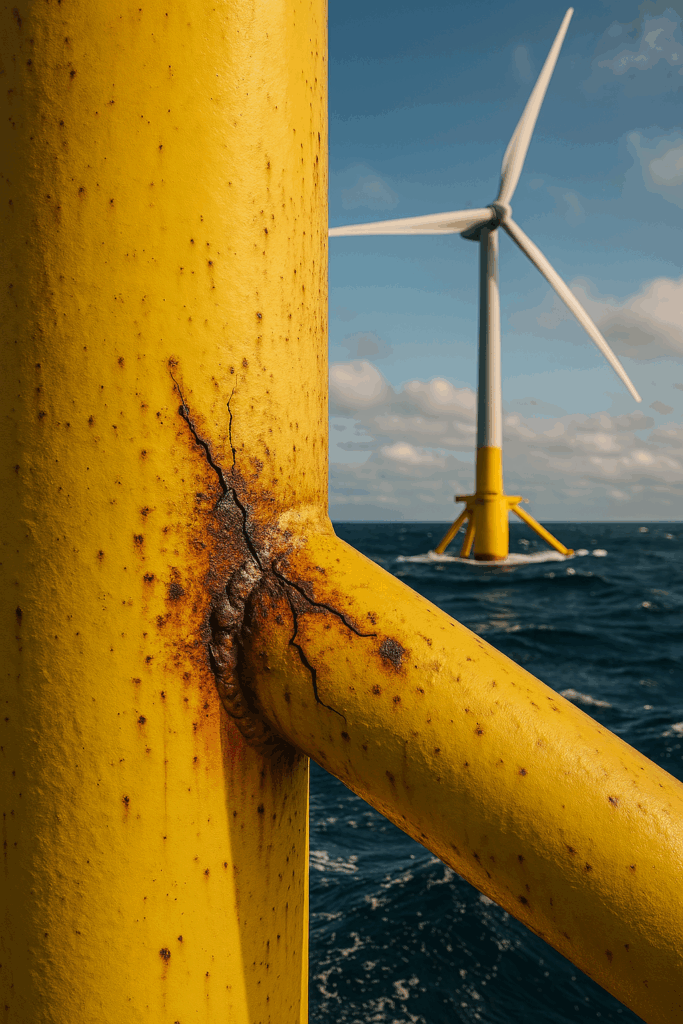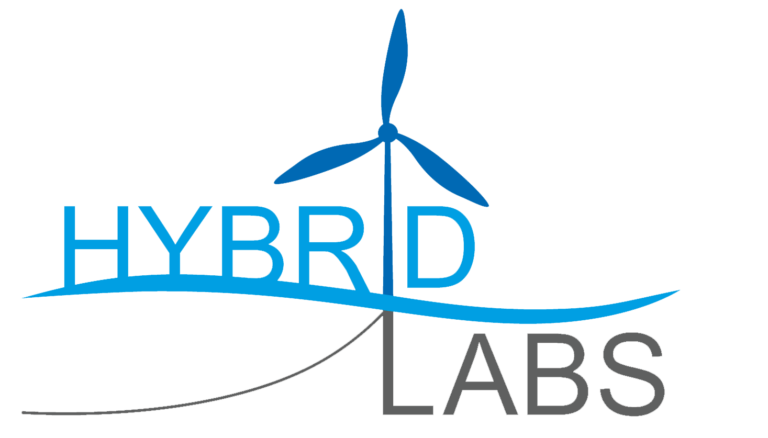
Maritime renewable energy structures like floating offshore wind turbines(FOWTs) are typically exposed to wave and wind induced loading conditions varying over time, introducing a cyclic response. Fatigue can be a governing limit state. For commonly applied materials like steel, the arc-welded joints typically connecting the planar and tubular structural members are fatigue sensitive because of the notched geometries; hot spots.
At the same time, the environment is corrosive, affecting the welded joint fatigue performance. Since corrosion and fatigue are mechanisms accumulating damage at different time scales and are vulnerable to dissimilar influence factors, interaction and even competition of the two is a complex phenomenon. Currently, corrosion as fatigue influence factor is not incorporated explicitly as the fatigue strength parameter.
The main aim of my project as a part of HybridLabs, is to develop a fatigue strength parameter explicitly incorporating corrosion under both constant and variable amplitude loading conditions in the actual working environment of FOWTs to obtain one fatigue resistance curve for all welded joints, in both ambient air and a corrosive environment.
Furthermore, the state-of-the-art fatigue modelling will be integrated with advanced sensors to measure and monitor corrosion fatigue, allowing for a more precise assessment of the real-life service duration of FOWTs. By accurately predicting corrosion fatigue life and anticipating failure through sensing, this research will contribute to lowering the Levelized Cost of Energy (LCOE) for wind power.
Contact: P.D.Gowda@tudelft.nl






Accelerating innovations in offshore renewables through data-driven hybrid labs.
@2025 HybridLabs